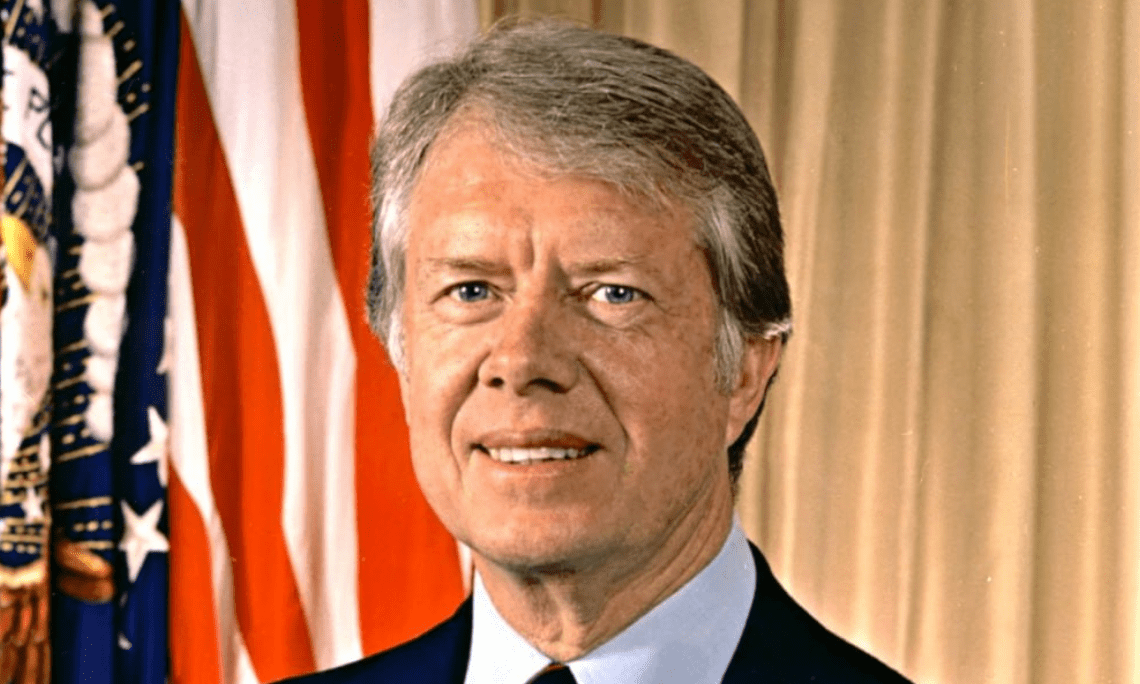As president, he emphasized human rights in his foreign policy, advocated for environmental protection when it was not yet popular, and appointed a record number of women and people of other races to office.
Former President Jimmy Carter, an outstanding naval officer, author, and humanist, has passed away. He was 100 years old.
“Our founder, former U.S. President Jimmy Carter, died today afternoon in Plains, Georgia,” — says a statement from The Carter Center.
The oldest American president in U.S. history entered hospice care in February 2023.
His death occurred almost two years after his wife, former First Lady Rosalynn Carter, died at their home in Plains, Georgia, at the age of 96, after joining her husband in hospice care.
He is survived by children — Jack, Chip, Jeff, and Amy, 11 grandchildren, and 14 great-grandchildren.
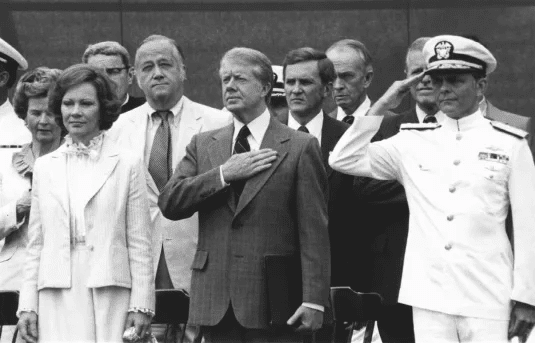
“My father was a hero not only to me but to everyone who believes in peace, human rights, and selfless love,” — said Chip Carter, the former president's son, in a written statement.
“My brothers, sister, and I shared him with the rest of the world through these shared beliefs. The world is our family thanks to how he united people, and we thank you for honoring his memory by continuing to live by these shared convictions.”
Public farewell ceremonies will be held in Atlanta and Washington, D.C., followed by a private burial in Plains, Georgia. According to The Carter Center, final arrangements for President Carter’s state funeral, including all public events and convoy routes, have not yet been made.
As president from 1977 to 1981, Carter largely disappeared from public view as his health declined and the COVID-19 pandemic limited his public appearances, including at his beloved Baptist church, Maranatha, where for decades he taught Sunday school services before crowds of visitors.
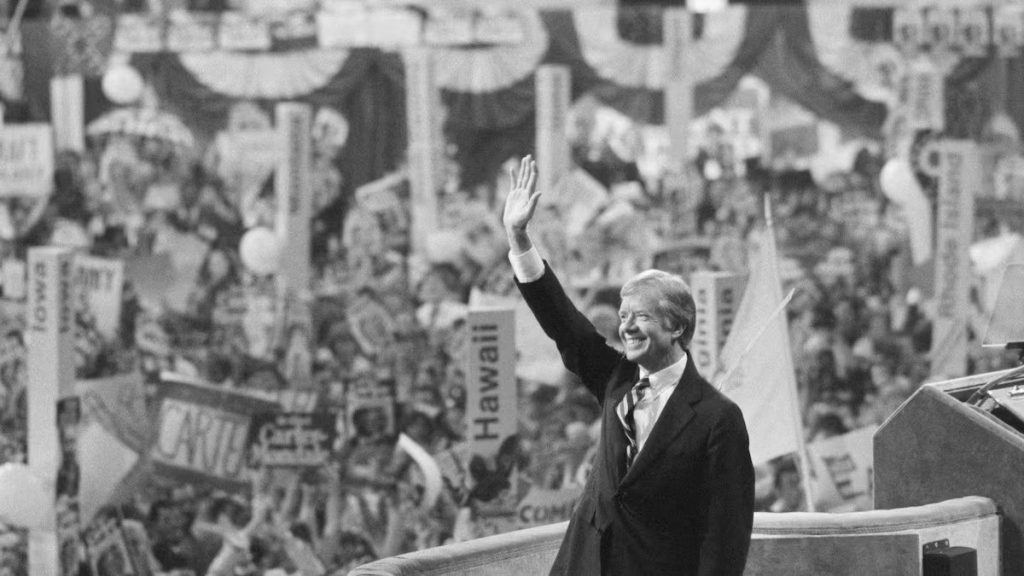
He and his wife Rosalynn spent their years following the White House in the small town of Plains, Georgia, with a population of about 650 residents, where they both are from and where they returned in 1981.
Stormy tenure in the White House
Carter was a little-known Georgia governor and peanut farmer when he launched his campaign for the presidency ahead of the 1976 election. He defeated then-President Gerald R. Ford, becoming an outsider in Washington amid the Vietnam War and Watergate scandal, which led to Richard Nixon’s resignation in 1974.
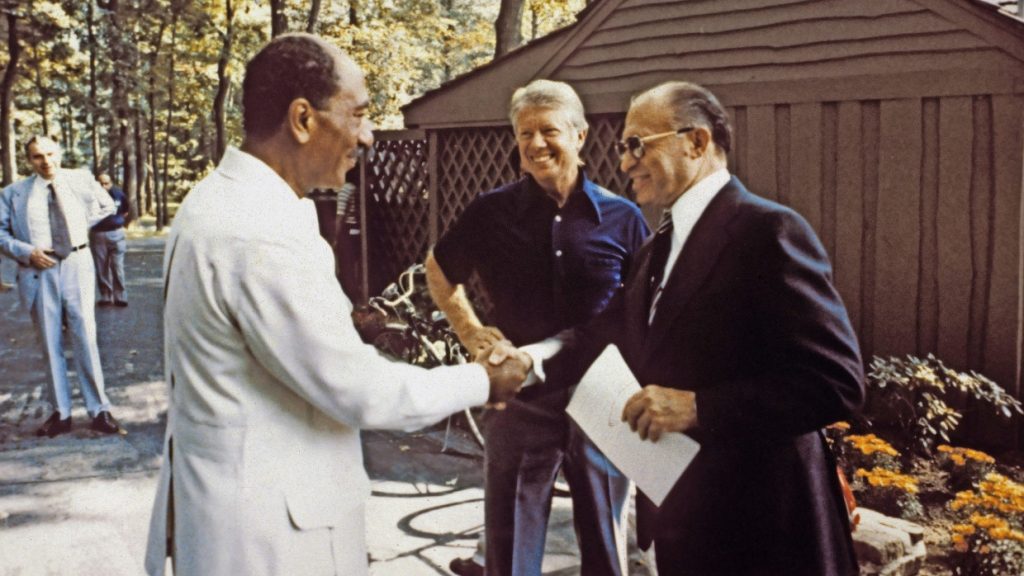
He served one tumultuous term and faced a series of setbacks, but after leaving the White House, he became perhaps the most famous post-president in U.S. history thanks to his decade-long global advocacy for democracy, public health, and human rights through The Carter Center.
During Carter’s presidency, events included the discovery of the Love Canal toxic waste dump, a nuclear reactor accident at Three Mile Island, an energy crisis, the boycott of the 1980 Moscow Olympics, and an economy fighting stagflation.
In July 1979, morale was so low that Carter went on television to speak about the “crisis of confidence,” which he believed had gripped the nation. Although history mocked his “malaise speech,” and critics accused him of blaming Americans for the state of the nation, he never actually used the word “malaise,” and the immediate reaction to the speech was mostly positive. However, the following month, an odd photograph of him bouncing a rabbit on a fishing pole during a pond outing drew more ridicule.
The most persistent stain on Carter’s administration appeared on November 4, 1979, when Iranians stormed the U.S. embassy in Tehran and held 52 Americans hostage to protest U.S. support for the recently deposed Shah of Iran, Mohammad Reza Pahlavi.
Six months after the hostage-taking, during a failed rescue attempt, eight American service members were killed — a tragedy that Carter later called one of the main factors in his defeat by Ronald Reagan in the 1980 presidential election.
Carter's administration lifted sanctions against Iran and worked for months to secure the hostages' release, negotiating up until Carter's last hours in office, but to no avail. The last straw for the besieged president was that Iranians waited just minutes after Reagan’s inauguration speech to announce they were releasing the hostages.
Despite all failures and mistakes, Carter’s time in the White House was marked by several significant achievements, including the Camp David Accords which brought peace between Egypt and Israel, and the establishment of full diplomatic relations with China.
On the domestic front, Carter is credited with deregulating a significant portion of the transportation industry, making air travel much more accessible for Americans. He expanded the national park system by over 100 million acres, created the Departments of Energy and Education, and deregulated the brewing industry, paving the way for the craft beer movement. He diversified the federal judicial and executive branches. He appointed Paul Volcker as head of the Federal Reserve, along with Reagan, credited for the economic growth of the 1980s. Carter was the first president to express concern about global temperature rise.
Post-presidential recovery
It was in the years after leaving office that Carter truly blossomed as the founder of The Carter Center, which “aims to prevent and resolve conflicts, strengthen freedom and democracy, and improve health worldwide.”
His organization, working in about 70 countries, increased crop yields in Africa, helped nearly eradicate Guinea worms, visited five continents on diplomatic missions, collaborated with Habitat for Humanity to build homes across the U.S. and abroad, and observed elections in over 39 countries.
Following the death of Supreme Court Justice Ruth Bader Ginsburg, Carter once again drew attention. He is the only president since 1850 who did not nominate any candidate for the Supreme Court, but he changed the composition of lower courts by appointing a record number of women and minorities, among which Ginsburg was the most prominent.
In 1980, Carter appointed Ginsburg, then the most experienced civil rights lawyer, to the D.C. Circuit Court of Appeals, which is considered the second-highest court in the country. She was the second woman Carter nominated as a judge for the District of Columbia, enabling her to be elevated to the U.S. Supreme Court 13 years later.
“He looked around at the federal judiciary and said, ‘You all look like me, but not the great United States,’” — Ginsburg said of this at the Fordham University School of Law forum in 2016.
A man of deep religious conviction, Carter made headlines in 2009 when he announced that he was severing ties with the Southern Baptist Convention. In an editorial published in “The Observer,” Carter condemned the denomination’s leaders for stating that women should be “subordinate” to their husbands and forbidding women to serve as deacons.
“This contradicted my faith, confirmed in Holy Scripture, that we are all equal in the eyes of God,” — Carter wrote about his decision, which he called “painful and difficult.”
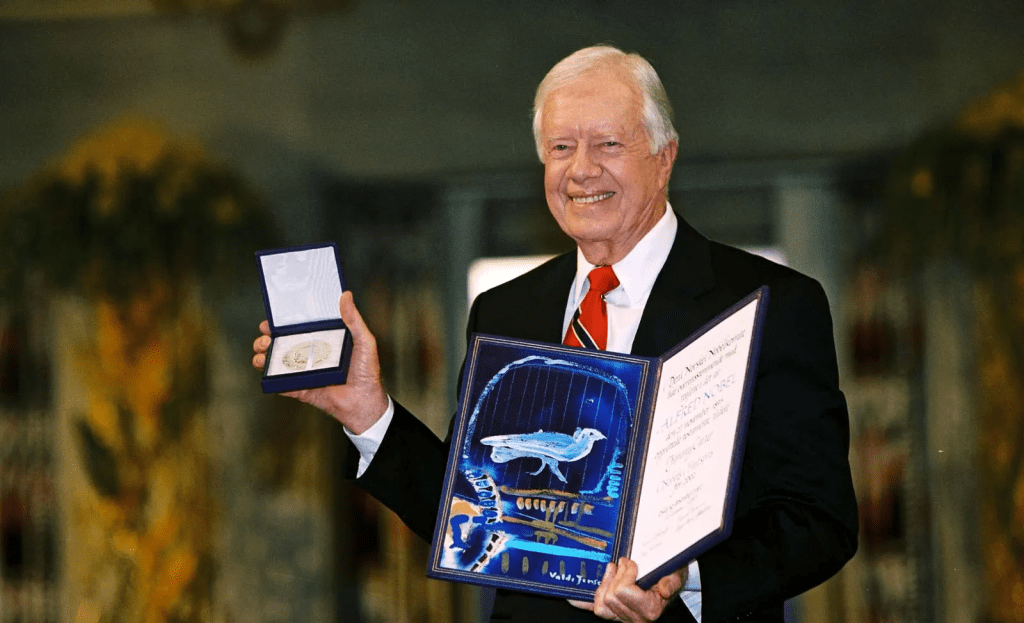
For his humanitarian efforts, Carter was awarded the Nobel Peace Prize in 2002, and the Nobel Committee took the opportunity to criticize the Bush administration’s stance on Iraq ahead of the 2003 invasion.
“In a situation now marked by the threat of force,” — said the Nobel citation, — “Carter adhered to principles that conflicts should, as far as possible, be resolved through mediation and international cooperation based on international law, respect for human rights, and economic development.”
After leaving Washington, Carter has written over twenty books, the latest being his new memoirs “A Full Life: Reflections at Ninety” and “A Call To Action: Women, Religion, Violence and Power,” which explores gender-based violence across five continents and religious persecution of women.
A man born in Plains, Georgia
Carter was born James Earl Carter Jr. on October 1, 1924, in Plains, Georgia. The oldest of four children, Carter grew up in nearby Archery, Georgia, where he attended a public school and later graduated from the U.S. Naval Academy in 1946.
Soon after graduation, Carter married Rosalynn Smith, with whom he had four children.
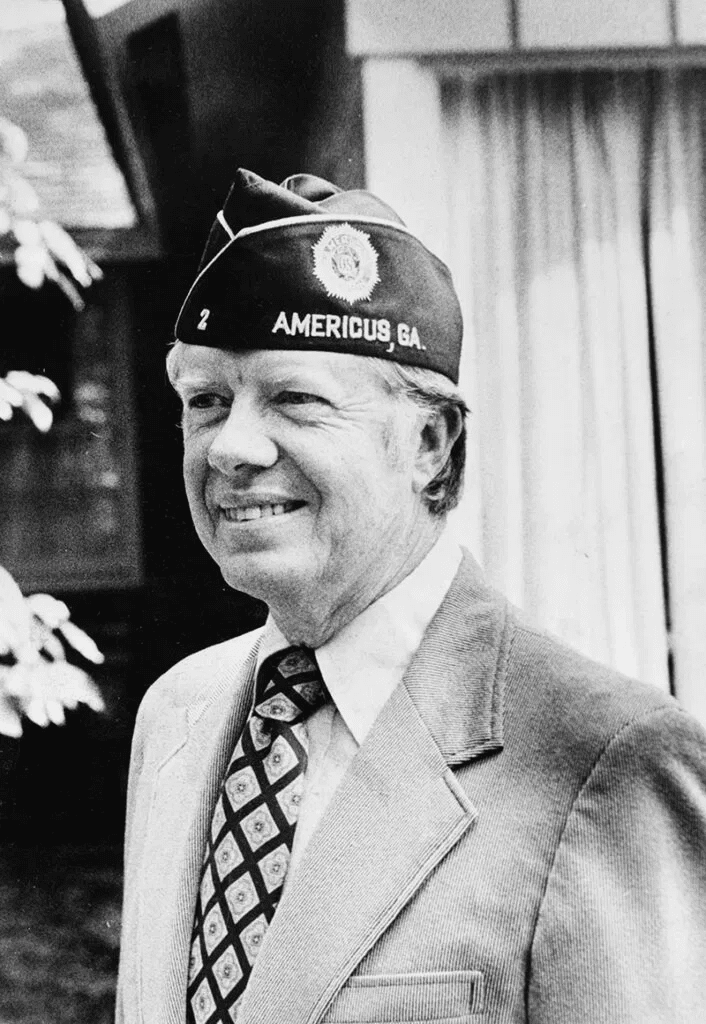
Carter spent seven years in the Navy, mainly working on the atomic submarine program, then returned to Georgia in 1953 to take over the family farm after his father’s death. His political career began modestly: he served on county councils overseeing education, hospital management, and libraries.
In 1962, Carter was elected to the Georgia State Senate, serving one term, then unsuccessfully ran for governor in 1966. The next four years, he prepared for the 1970 race, delivering hundreds of speeches across the state, which helped him settle into the Governor’s Mansion. Four years later, he announced his intention to run for president.
In a 2013 interview with The Washington Post, he said he hoped to be remembered as a champion of human rights.
“Human rights are more than just freedom of speech, the right to choose your leaders, and freedom of assembly. They also include the right to housing, access to adequate healthcare, and the right to live in peace. That’s how I want to be remembered — as a defender of human rights and peace.”
Later years
During a trip to Guyana in May 2015 to observe elections, the elderly Carter fell ill and returned to Atlanta before the polling stations opened in the South American country. These elections would have been his 39th overseas election observation mission.
When he returned home, doctors at Emory University Hospital in Atlanta discovered a tumor on his liver. It was surgically removed on August 3, along with about ten percent of his liver. Tests revealed metastatic melanoma that had spread to the liver and also to the brain.
“I am prepared for anything and look forward to new adventures,” — he said at an unusual press conference on August 20 to discuss his illness.
“I thought I had a few weeks left, but I felt remarkably calm. I had a wonderful life,” — Carter said, describing his reaction to the diagnosis of four spots of melanoma on his brain. “All in God’s hands. I will be ready for whatever may come.”
After radiation, immunotherapy, and treatment of his brain lesions, he announced in December 2015 that he was healthy.
Carter’s doctors monitored him closely for pancreatic cancer, which killed his father and three siblings, but no cancer was found there. However, he said he expected the disease could appear in other parts of his body.
In 2019, Carter was hospitalized for surgery to reduce brain pressure caused by bleeding from several falls, and a few weeks later, he was re-hospitalized for a urinary tract infection.
Members of the public are encouraged to visit the official website dedicated to President Carter’s life: www.jimmycartertribute.org, where they can sign the online book of condolences.
The Carter family requests that, instead of flowers, donations be sent to The Carter Center, 453 John Lewis Freedom Parkway N.E., Atlanta, GA 30307.
